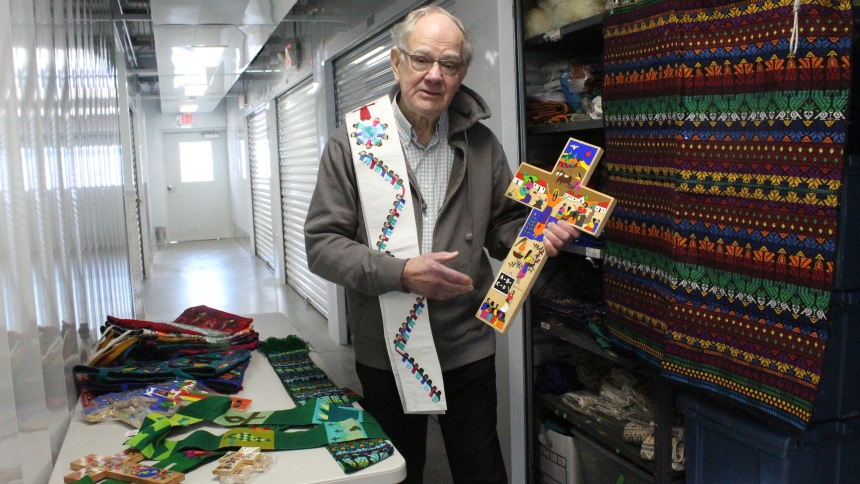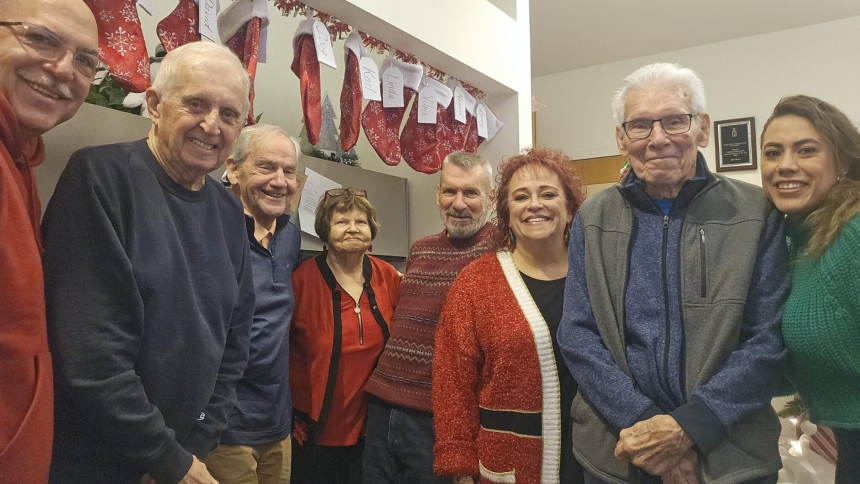
As principals, teachers and other school leaders prepared for the start of the 2023-2024 academic year – setting itineraries, connecting computers and stacking books – some took stock of the benefits inherent in the Catholic approach to a holistic, body-mind-soul education.
Diocesan principals have said that personalized learning, orderly classrooms and the hope brought about through incorporating Jesus Christ into everyday activities have allowed Catholic schools to generally outperform their public-school counterparts in quantifiable ways.
Data released this year in the National Assessment of Educational Progress (NAEP), commonly referred to as the “nation’s report card,” back up some of those observations and also show that private school students more effectively weathered the pandemic and more quickly closed the learning gap caused by coronavirus-related shut-downs.
In an article published by Fox News from The American Federation for Children, an organization that seeks to “empower families, especially lower-income families, with the freedom to choose the best K-12 education for their children,” author Corey DeAngelis spoke of “sobering trends” in national education since 2020.
“On average, public-school students lost historic ground in math (10 points) and reading (6 points) since before the pandemic,” DeAngelis wrote.
DeAngelis detailed year-long closures of some municipal systems: “the more time students spent outside the classroom, the less they learned.” He contrasted how Catholic schools systems overwhelmingly stayed open while adhering to Centers for Disease Control (CDC) and local safety protocols.
The article detailed a 4% increase in Catholic school enrollment, showing that, at the same time, public schools lost one million students.
Those statistics do not surprise diocesan schools leaders. According to assistant superintendent Julie Remschneider, the schools department uses metrics from educational assessment organizations such as NWEA. “Our schools demonstrated above average growth in math and reading, surpassing those of local public schools,” she said about newly released information.
“We use data to make instructional decisions and strategically plan goals,” said Remschneider.
New superintendent Colleen Brewer said that more than the statistics, her visits with school principals and teachers makes her optimistic about the future of Catholic education in Northwest Indiana. Personal learning, she said, is an identifiable quality of each of the diocese’s 20 schools.
Whereas DeAngelis wrote that “There’s no secret sauce to the Catholic school advantage in mitigating learning loss: the typical parochial school starts its learning day earlier (and) focuses on the basics.” Brewer struck a different note. She spoke about meeting the needs of area families who have held fast to the educational traditions or returned to the faith after the pandemic spurred a “realignment” of priorities.
Brewer, whose career spans more than two decades in Catholic schools, said diocesan educational institutions are poised for growth, because of the values that are advocated there and because the state allows taxpayers’ money to follow with their child to the school of their choice.
“We have a great opportunity to grow in the Diocese of Gary,” said Brewer. “Whether it comes to School Choice, enrollment or academic achievement growth … All of our teachers are great – we’re optimistic about all the great things we can do as a diocese as we work towards making sure all of our students have a relationship with God and learn to care for each other.”
Third-year St. John the Evangelist principal Katie Fredericksen said a prioritization of faith among those associated with SJE has helped the school family thrive in challenging times.
“Overall, not just school-wide but also within friends’ circles, during the pandemic, people who had a strong faith … it was not affecting them as much. I think having Christ, having Jesus at the center of all that we do enhances the good, or dulls the bad.”
She explained that the school attempted to help promote the physiological health as well as psychological health of the student body by offering classroom learning overlayed with safety protocol.
“When I came, we were a mask-optional facility,” Fredericksen said. “The year before that when some local schools were closed, (SJE) was open, but masked. So, we were a step ahead.”
“I (emphasize) about the inherent dignity of all; we’re all made in the likeness and image of God. Just knowing that these kids are coming to an environment where we are going to teach them more about their faith is going to help them get closer to God and closer to the truth about who they are … giving them that purpose and equipping them to live out the life that God has called them to.”
On Aug. 9 at St. Thomas More in Munster, Dr. Samantha Francis led a session for teachers, one of several meetings in the days before school started. The 7-year principal cited the “consistency” of the school’s pandemic mitigation efforts, which emphasized safe, in-classroom learning.
“We didn’t look at it as a (learning) gap, but we looked at it as ‘let’s see where they are and get them to where they need to be,’” Francis said, as she prepared to share materials about new state standards for marking student achievement.
Maintaining small class sizes and attracting dedicated teachers – two of whom are 30-year school veterans – are keys to the success of St. Thomas More.
“We have a unique education plan for each child,” Francis said. “We voted as a teacher group (to make) 24 as our largest class size.”
She said the school established in 1945 is almost at capacity with 550 students. “What a blessing, with the Choice Scholarship that allows people to come to a Catholic school – it’s huge.
Francis continued, “Parents want a faith-filled (school) … so their children are getting an education where Jesus Christ is at the center.
“We start with prayer, we start with the Pledge (of Allegiance) and there is consistency with how they do things,” she explained. “What people say is that when our kids move on to high school, they are well prepared and have study skills that help them succeed.”
Caption: St. Thomas More School principal Dr. Samantha Francis (center) looks over data shown by teachers Kris Gierut (left) and Kathy Tolnai (right), who are among the Munster school's faculty gathered for a meeting on Aug. 9, days ahead of the start of school. Local Catholic school leaders have expressed optimism for the future of students' academics and well-being, citing assessments which are complementary of Catholic school values of personal learning and orderly classrooms while educators promote Christ-centered values. (Anthony D. Alonzo photo)



